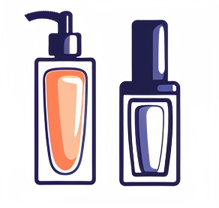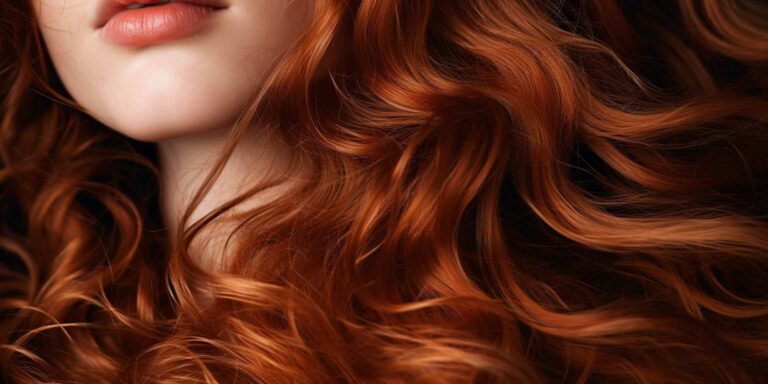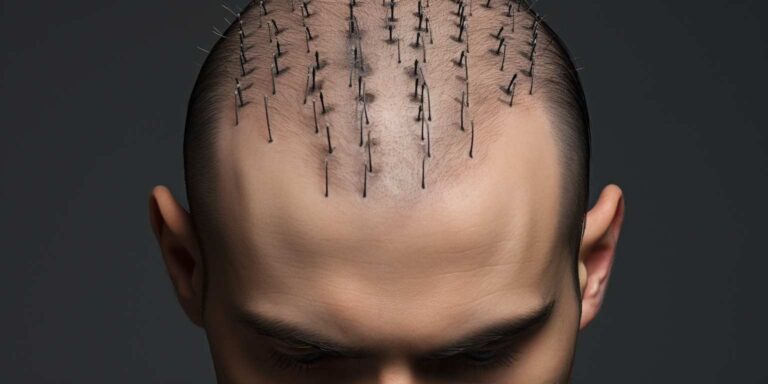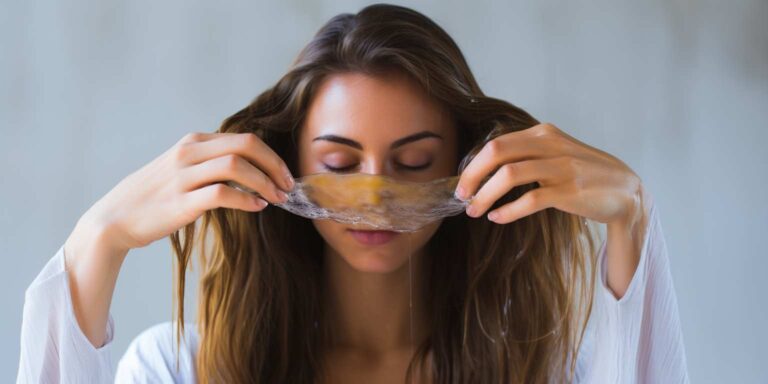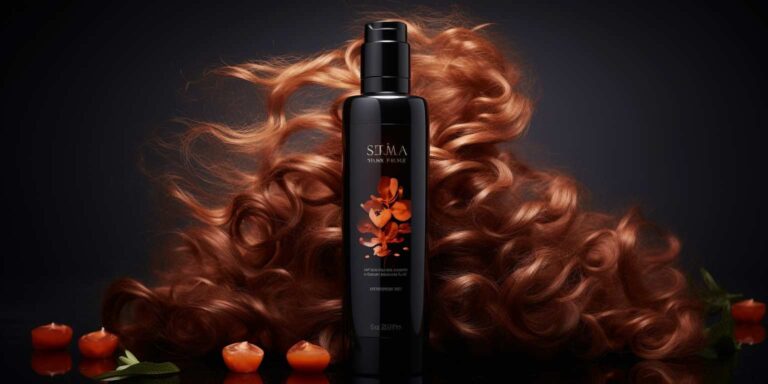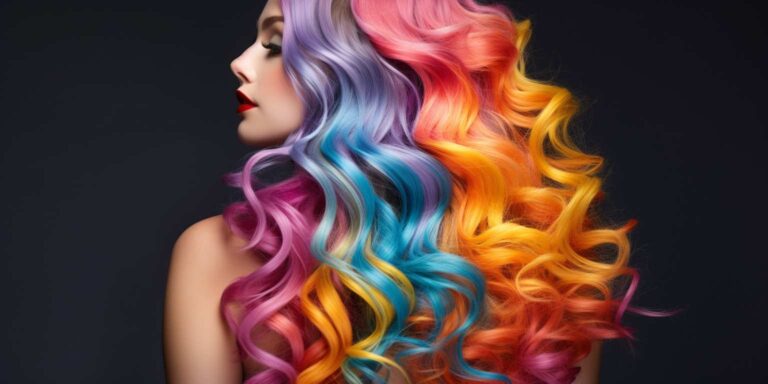The ultimate guide to shampoo and conditioner for greasy hair
Understanding the Basics: Greasy hair occurs when the sebaceous glands in the scalp produce too much oil, known as sebum. This overproduction can lead to a slick, oily appearance, often accompanied by a heavy or dirty feeling.
Choosing the Right Shampoo: Look for clarifying shampoos specifically designed to remove excess oil and build-up from the scalp. These shampoos typically contain ingredients like salicylic acid or tea tree oil to cleanse deeply without stripping the hair of essential moisture.
Key Ingredients to Look For: Salicylic acid effectively exfoliates the scalp, removing dead skin cells and unclogging hair follicles. Meanwhile, tea tree oil boasts antimicrobial properties that can help combat dandruff and fungal infections, often associated with oily scalps.
Frequency of Use: While it’s essential to cleanse the scalp regularly, overwashing can actually exacerbate oil production. Aim to shampoo every other day or every two days to maintain a healthy balance.
Conditioning Wisely: When selecting a conditioner for greasy hair, opt for lightweight formulas that won’t weigh down the hair or add extra oil. Avoid applying conditioner directly to the scalp, focusing instead on the mid-lengths to ends of the hair.
Ingredients to Avoid: Steer clear of heavy silicones and oils, as these can contribute to a greasy build-up on the scalp. Look for terms like “non-comedogenic” or “oil-free” on product labels to ensure they won’t exacerbate oiliness.
Balancing Act: Finding the right balance between cleansing and moisturizing is crucial for managing greasy hair. Experiment with different products and techniques until you find what works best for your hair type.
Best shampoo for oily hair and dandruff: a closer look
When it comes to battling the twin troubles of oily hair and pesky dandruff, finding the right shampoo can feel like searching for a needle in a haystack. Fear not, for we’ve delved deep into the world of hair care to bring you a closer look at the best shampoo for oily hair and dandruff.
First on our list is the Head & Shoulders Instant Oil Control Anti-Dandruff Shampoo. This powerhouse formula not only targets dandruff flakes but also helps regulate oil production on the scalp. Infused with zesty lemon extract, it leaves your hair feeling fresh and revitalized.
| Shampoo Name | Main Benefits |
|---|---|
| Head & Shoulders Instant Oil Control Anti-Dandruff Shampoo | Regulates oil production, fights dandruff, refreshes scalp with lemon extract. |
Next up, we have the Neutrogena T/Gel Therapeutic Shampoo. This dermatologist-recommended formula contains salicylic acid to target dandruff at its source. Its gentle yet effective cleansing action helps control oiliness without stripping the scalp of its natural oils.
| Shampoo Name | Main Benefits |
|---|---|
| Neutrogena T/Gel Therapeutic Shampoo | Dermatologist-recommended, contains salicylic acid to combat dandruff, gentle cleansing action. |
For those who prefer natural alternatives, look no further than the Briogeo Scalp Revival Charcoal + Coconut Oil Micro-Exfoliating Shampoo. Harnessing the purifying power of charcoal, this shampoo detoxifies the scalp while coconut oil provides nourishment. It’s a winning combination for oily, dandruff-prone hair.
| Shampoo Name | Main Benefits |
|---|---|
| Briogeo Scalp Revival Charcoal + Coconut Oil Micro-Exfoliating Shampoo | Utilizes charcoal for scalp detoxification, nourishes with coconut oil, suitable for oily, dandruff-prone hair. |
Lastly, we have the Paul Mitchell Tea Tree Special Shampoo, a cult favorite among those with oily scalps and dandruff issues. Infused with tea tree oil, it invigorates the scalp while soothing irritation. Plus, its antimicrobial properties help keep dandruff-causing fungi at bay.
| Shampoo Name | Main Benefits |
|---|---|
| Paul Mitchell Tea Tree Special Shampoo | Contains tea tree oil for scalp invigoration, soothes irritation, antimicrobial properties combat dandruff-causing fungi. |
Natural oily hair shampoo solutions for daily use
Natural oily hair shampoo solutions offer a gentle yet effective way to manage excess oil production on the scalp, ensuring that your hair stays fresh and vibrant throughout the day. If you’re tired of dealing with greasy hair that seems to weigh you down, it’s time to explore daily use options that harness the power of nature to balance oil levels without stripping your hair of its natural moisture.
When it comes to combating oily hair, choosing the right shampoo is essential. Look for products that contain clarifying ingredients such as tea tree oil, peppermint, or lemon extract, which are known for their ability to cleanse the scalp and regulate oil production. These ingredients not only remove excess oil and buildup but also provide a refreshing sensation that invigorates the scalp.
Additionally, herbal extracts like rosemary and lavender can help soothe the scalp and reduce inflammation, making them ideal ingredients for oily hair shampoos. These botanical extracts not only offer a gentle cleansing experience but also leave your hair smelling fresh and rejuvenated.
One popular natural remedy for oily hair is apple cider vinegar. Its acidic properties help balance the pH level of the scalp, which in turn regulates oil production. Look for shampoos that contain apple cider vinegar as a key ingredient for a deep yet gentle cleanse that leaves your hair feeling light and refreshed.
Choosing the right shampoo frequency is crucial when dealing with oily hair. While it’s tempting to wash your hair frequently to combat oiliness, over-washing can strip your scalp of its natural oils, leading to increased oil production as a result. Instead, opt for a daily use shampoo specifically formulated for oily hair, and consider incorporating a clarifying treatment once or twice a week to remove any stubborn buildup.
When using natural oily hair shampoos, it’s important to massage the product gently into the scalp to ensure thorough cleansing while stimulating blood flow. Allow the shampoo to sit for a few minutes before rinsing thoroughly with lukewarm water. Avoid using hot water, as it can stimulate oil production.
Finally, follow up with a lightweight conditioner applied to the ends of your hair to avoid weighing down your strands. Look for conditioners that are specifically designed for oily hair types and avoid applying them to the scalp to prevent excess oil buildup.
How to choose the right shampoo and conditioner for greasy hair
Choosing the right shampoo and conditioner for greasy hair
Dealing with greasy hair can be a frustrating ordeal, but selecting the right shampoo and conditioner can make a significant difference in managing this issue. Here are some essential tips to consider when choosing products tailored for greasy hair:
| Factors to consider | Key Points |
|---|---|
| Hair Type | Identify whether you have fine, medium, or coarse hair. Greasiness tends to be more noticeable in fine hair, requiring lighter formulations. |
| Ingredients | Look for shampoos and conditioners that contain clarifying agents such as tea tree oil, salicylic acid, or charcoal, which help remove excess oil without stripping the scalp. |
| Formulation | Opt for gentle, sulfate-free formulas that cleanse effectively without causing dryness. Avoid products with heavy moisturizers, as they can exacerbate greasiness. |
| Volume | Choose products that claim to add volume to the hair. These formulas typically contain ingredients that lift the roots and create a fuller appearance, helping to combat flat, greasy locks. |
| Fragrance | Opt for light, fresh scents rather than heavy, overpowering fragrances. Avoid products with synthetic fragrances, as they can sometimes exacerbate oiliness. |
Furthermore, it’s essential to establish a consistent hair care routine to effectively manage greasiness. Washing your hair too frequently can strip away natural oils, leading to rebound oil production. Aim to shampoo every other day or as needed, and consider using dry shampoo between washes to absorb excess oil.
The role of diet and lifestyle in managing oily hair
In managing oily hair, understanding the role of diet and lifestyle is crucial. Oily hair occurs when the scalp produces an excess of sebum, leading to greasy, unwashed appearances. While genetics play a role, certain dietary choices and lifestyle habits can exacerbate or alleviate oily hair conditions.
DIETARY CONSIDERATIONS:
| Dietary Factor | Impact on Oily Hair |
|---|---|
| Fatty Foods | Elevate sebum production. Reduce intake to control oiliness. |
| Sugar | High sugar intake can stimulate sebaceous glands, contributing to oiliness. Opt for low-glycemic alternatives. |
| Omega-3 Fatty Acids | Essential for skin health. Incorporate sources like fish, flaxseeds, and walnuts to regulate sebum production. |
| Vitamins A and D | Deficiencies may lead to increased oiliness. Consume foods rich in these vitamins like carrots, sweet potatoes, and fortified dairy products. |
| Water | Hydration is key for overall skin health. Drink plenty of water to maintain scalp balance and reduce oiliness. |
LIFESTYLE ADJUSTMENTS:
- Regular Hair Washing: Wash hair every other day using a mild shampoo formulated for oily hair. Avoid overwashing, which can strip the scalp of natural oils, triggering increased sebum production.
- Avoid Touching: Minimize touching hair throughout the day to prevent transferring oil from hands to hair strands.
- Choose Hairstyles Wisely: Opt for hairstyles that keep hair away from the face to minimize contact with oil-prone areas.
- Stress Management: High stress levels can exacerbate oily scalp conditions. Practice stress-reducing techniques like meditation, yoga, or deep breathing exercises.
- Adequate Sleep: Lack of sleep can disrupt hormone levels, potentially leading to increased sebum production. Aim for 7-9 hours of quality sleep per night.
Innovative ingredients in shampoo for greasy hair
In the realm of hair care, battling greasy hair can often feel like a never-ending struggle. Fortunately, the beauty industry has been hard at work developing innovative ingredients to combat this common issue. From natural extracts to cutting-edge technology, the latest shampoos for greasy hair boast an array of ingredients designed to cleanse, balance, and revitalize your locks.
One standout ingredient in modern anti-grease shampoos is charcoal. Known for its powerful detoxifying properties, activated charcoal acts like a magnet to draw out impurities, excess oil, and buildup from the scalp and hair follicles. Its deep-cleansing action leaves the scalp feeling refreshed and rejuvenated, making it an ideal choice for those with greasy hair.
Another ingredient gaining traction in the fight against greasiness is tea tree oil. Renowned for its antimicrobial and antifungal properties, tea tree oil helps to cleanse the scalp and regulate sebum production. By keeping oil levels in check, tea tree oil can effectively prevent greasy buildup while promoting a healthy scalp environment.
For those seeking a gentler approach, aloe vera is a popular ingredient in greasy hair shampoos. Not only does aloe vera soothe and hydrate the scalp, but it also helps to balance oil production. Its moisturizing properties ensure that the scalp remains nourished without overstimulating oil glands, resulting in hair that feels clean and refreshed.
Additionally, innovative formulations often incorporate salicylic acid to target greasy roots. As a beta hydroxy acid, salicylic acid penetrates deep into the pores to dissolve oil and impurities, effectively preventing clogged follicles and greasy buildup. Its exfoliating action promotes a clearer scalp and healthier hair growth.
Furthermore, menthol is a key ingredient in many greasy hair shampoos due to its cooling and invigorating effects. Not only does menthol provide a refreshing sensation, but it also helps to regulate sebum production, keeping excess oil at bay. Its tingling sensation leaves the scalp feeling revitalized, making it a popular choice for those with greasy hair.
| Ingredient | Benefits |
|---|---|
| Charcoal | Deep-cleansing, detoxifying |
| Tea Tree Oil | Antimicrobial, oil-regulating |
| Aloe Vera | Hydrating, oil-balancing |
| Salicylic Acid | Exfoliating, prevents buildup |
| Menthol | Cooling, sebum-regulating |
Preventing greasy hair: tips and tricks
Are you tired of battling with greasy hair every day? Don’t worry; you’re not alone. Dealing with oily hair can be frustrating, but with the right tips and tricks, you can keep your locks looking fresh and clean for longer.
Understanding the root cause of greasy hair is the first step to finding a solution. Sebaceous glands in your scalp produce sebum, a natural oil that helps keep your hair moisturized. However, when these glands produce too much sebum, it can leave your hair looking oily and unwashed.
Shampooing frequency plays a crucial role in managing greasy hair. While it may be tempting to shampoo every day, overwashing can strip your scalp of its natural oils, causing it to produce even more sebum to compensate. Instead, try shampooing every other day or every few days to allow your scalp to regulate its oil production.
Choose the right shampoo for your hair type. Look for products labeled as “clarifying” or “volumizing”, as these are specifically formulated to remove excess oil and build-up from the scalp. Avoid heavy, creamy formulas that can weigh down your hair and make it look greasier.
| Tip | Description |
|---|---|
| Dry shampoo | If you’re in a pinch, dry shampoo can be a lifesaver. Simply spray it onto your roots, wait a few minutes, and then brush it out to absorb excess oil. |
| Avoid touching your hair | As tempting as it may be, try to avoid touching your hair throughout the day. The oils from your hands can transfer to your strands, making them look greasier. |
| Use a clarifying treatment | Once a week, treat your hair to a clarifying shampoo or apple cider vinegar rinse to remove any stubborn build-up and refresh your scalp. |
When conditioning your hair, focus on the mid-lengths and ends, avoiding the roots where sebum is most concentrated. Opt for lightweight, oil-free conditioners that won’t weigh down your hair.
Avoiding heat styling tools can also help prevent greasy hair. Heat can stimulate the production of sebum, so try to air dry your hair whenever possible or use the cool setting on your blow dryer.
